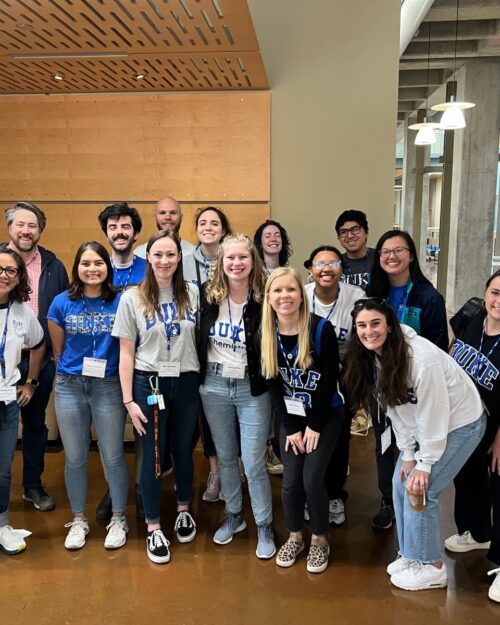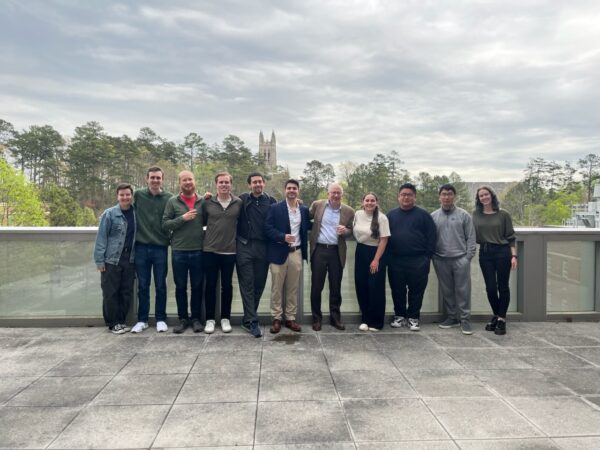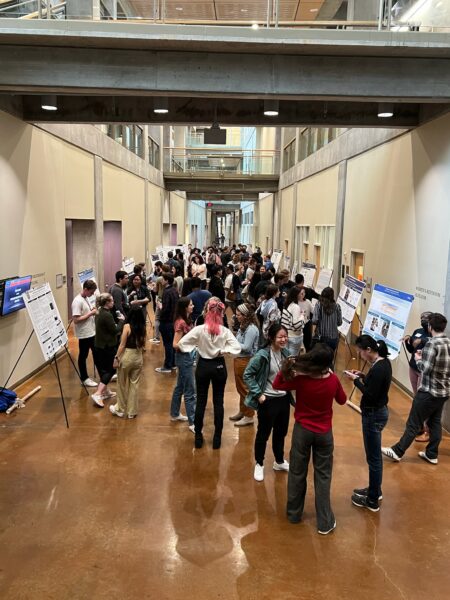September 12, 2025

In my last blog post, I covered financial packages for STEM PhD students and how they’re funded. While finances are a major factor in deciding where to go, they’re not the only thing that matters. Now, let’s dig into other key considerations that can make or break your graduate school experience.
Choosing a program is a big decision and the first milestone of grad school. There’s no one-size-fits-all answer since everyone has different priorities, but there is a program that’s the right fit for you. The key is figuring out which one aligns best with your goals, needs, and values.
Here are a few categories to start thinking about:
Principal Investigators (PIs)
The PI (the person who runs your research group) you choose and your relationship with them will strongly influence your graduate school experience. When evaluating programs, make sure there are multiple faculty whose research excites you and whose mentorship style aligns with your needs.
Ideally, you should be excited about at least three potential PIs. Why? Because things change. A PI may not be taking students the year you apply, or they could leave the university altogether. Having multiple options gives you flexibility and a safety net.
Research Fit
This goes hand in hand with choosing a PI. Ask yourself: Does this program actually offer the kind of research I want to do? It might sound obvious, but it’s surprisingly easy to get swept up in the prestige of a school without noticing that no one there studies what excites you.
If you’re passionate about cancer therapeutics, don’t settle for a program where your only option is to research yeast metabolism. Five (or more) years is a long time, you’ll want to spend it on research that truly motivates you!
Department Culture
When you join a program, you’re not just joining a lab, you’re joining a department. The overall culture can shape your experience just as much as your research. Think about what kind of environment you’ll thrive in.
- Size: Do you prefer a large department where you can stay in your niche, or a smaller one where everyone knows each other?
- Structure: Some departments are divided into formal divisions (e.g., organic, physical, computational divisions for chemistry programs), while others are more collaborative across subfields.
- Atmosphere: Is the department competitive, laid back, or somewhere in between? Do students support each other, or does everyone work more independently?
 For example, I chose a program without divisions because I wanted a smaller, more collaborative feel. Now I do organic chemistry in a physical inorganic lab that also dabbles in computation, a mix I probably wouldn’t have found in a more rigidly structured department.
For example, I chose a program without divisions because I wanted a smaller, more collaborative feel. Now I do organic chemistry in a physical inorganic lab that also dabbles in computation, a mix I probably wouldn’t have found in a more rigidly structured department.
Be honest with yourself about the kind of culture where you will succeed. Some people thrive under pressure, while others need a more relaxed environment. Neither is better; it’s all about finding the right fit for you.
Location and Cost of Living
Don’t underestimate the importance of location. Grad school is tough, and your surroundings can make a big difference in your well-being. Sometimes, being able to step outside for a reset —whether that’s a hike or a stroll downtown—can be just as important as your research.
- Lifestyle: Do you want to be near family, a coast, mountains, or a big city? What kind of weather makes you happiest?
- Practical factors: Will your partner need job opportunities nearby? Will you need a car to get around?
- Cost of living: A $25,000 stipend looks very different in a city where rent is $2,000/month versus one where it’s $800. Always weigh your financial package against local living costs!
Questions to Ask During Visits
Most programs host interviews or visitation weekends for admitted students. This is your chance to ask questions and get the inside scoop directly from current grad students. Come prepared with questions – here are a few to start with:
- How would you describe the department’s culture?
- What’s your favorite thing about your program? What would you change?
- What made you choose this program? What made you choose your lab?
- How many hours do you typically work each week?
- What’s your PI’s mentorship style?
- How do students in your department interact with each other? How about within your lab?
- How would you describe your work/life balance?
Even if you aren’t able to visit, don’t be afraid to email current graduate students and ask these directly; they’ll usually give you an honest take!
Final Thoughts
At the end of the day, you know yourself best. You know the environments where you thrive and the ones where you struggle. The goal is to find a program that makes you feel both comfortable and excited about your work.
If you get the chance to visit, talk to as many students and faculty as possible. Remember: everyone, from grad students to PIs, wants you to find the right fit, even if it’s not with them.
Grad school is a long journey, but choosing the right program is the first step toward making it a fulfilling one. Trust yourself – I’m confident you’ll make the right decision!
*These insights are based on my experience as a Ph.D. candidate in chemistry at a private university. Your experience may vary depending on your institution and field.
Find a Volunteering Opportunity
Visit our Program Volunteers page for a tool to find the best opportunity for you.
